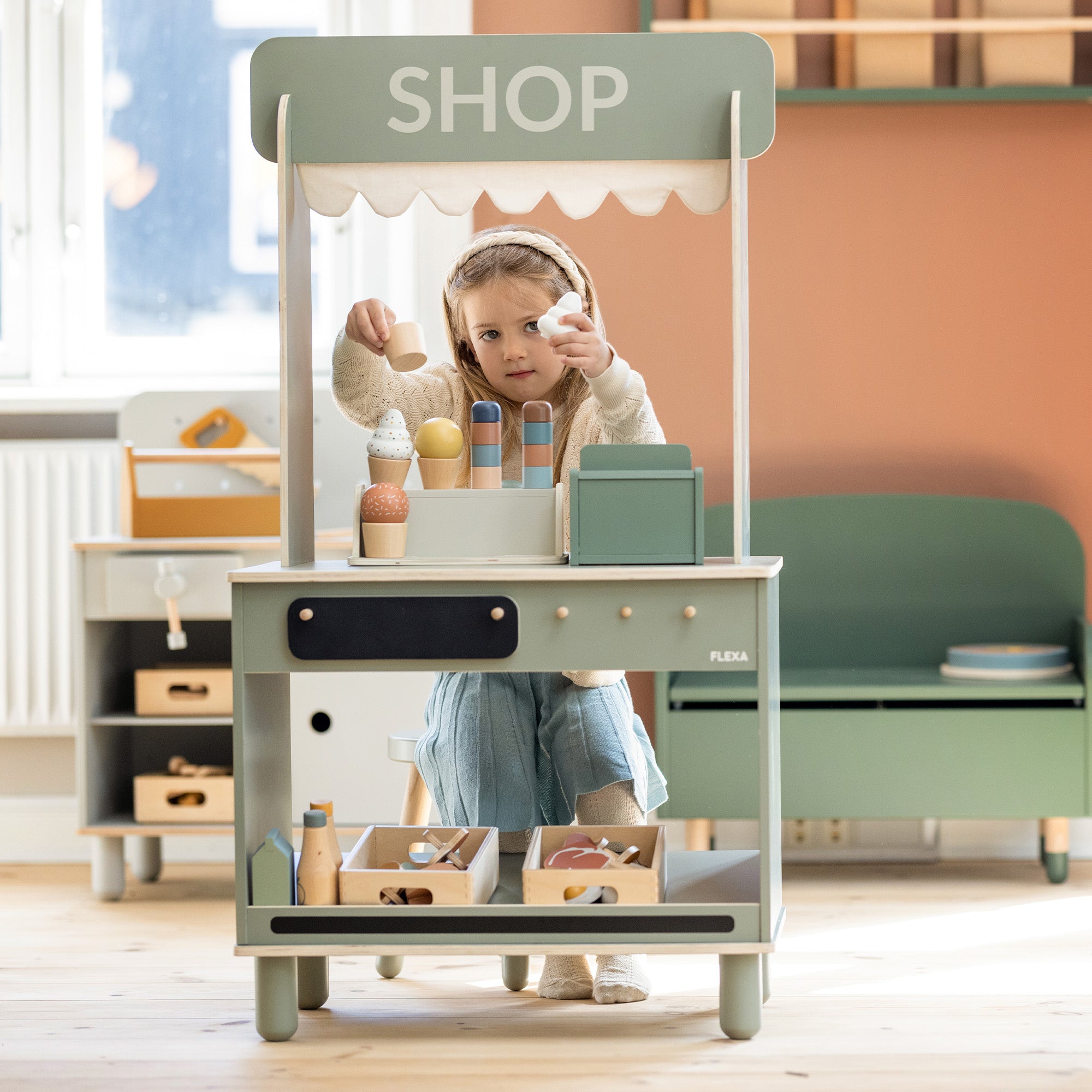“Welcome to my shop, how can I help you?” Playing shop and customer is not only a fun game to play with siblings and playmates. It’s also a rewarding game which teaches your child empathy, conflict resolution, and numeracy skills. We’re focusing on the play shop to let you know how exactly this toy benefits your child.
Highlights:
- The play shop is a versatile toy that can be used for playing store, café, and much more.
- Empty food packages, old gift-wrapping papers, and the like are great play shop add-ons.
- Playing shop and customer teaches your child social skills, like showing empathy.
- The made-up universe offers a safe environment for children to work out their conflicts.
- Pricing items and adding up amounts support your child’s numeracy skills.
Shop, Café, or Ice Cream Cart
Children have great imaginations, and it’s incredible to see how they use their toys for several purposes. One day, their play shop might be a grocery store selling fruits and vegetables. The next day, you can buy pizza from their pop-up café. And on hot, summer days, their shop turns into an ice cream cart.
“Your child will love it if you collect empty food packages, old gift-wrapping papers, and all sorts of colourful ribbons for their imaginary play. Part of the fun is setting up and arranging all the different displays, and to customers your little one will be able to proudly present a broad selection of goods,” says family advisor, Lola Jensen.
Showing Empathy & Resolving Conflicts
Through role play, your child learns important social skills, like caring for each other, taking turns, and showing empathy. Standing closely side by side with siblings and playmates can sometimes end in conflict, but luckily the best way to learn conflict resolution is through role play.
“The made-up universe, where everyone plays a different role, offers a safe environment for children to work out their disagreements. It’s great when they get to work out the issues on their own, as this teaches them how their words and actions affect others. Listen to their narrative and only step in if you feel things get out of hand,” says Lola Jensen.
One Plus One Makes…
Part of running a play shop is also pricing items, adding up amounts, and giving back change – tasks that support your child’s numeracy skills. With a toy cash register you make it easier for your little one to grasp the concepts of sums and totals. Expert in children’s play, Joern Martin Steenhold, explains:
“Children learn best when things are made tangible. When it comes to math, they need to see and touch the numbers. They might not fully get the concept of adding and subtracting, but they learn, for example, that two coins are worth more than one coin.”
Who’s ready to play shop and customer?

